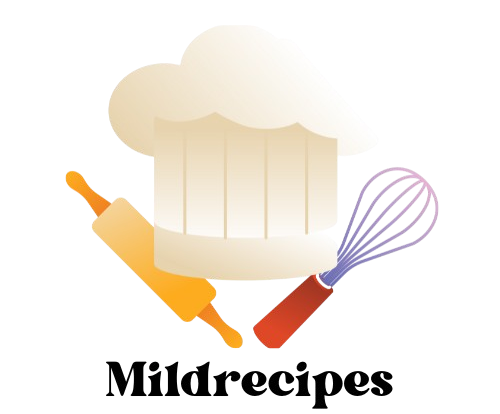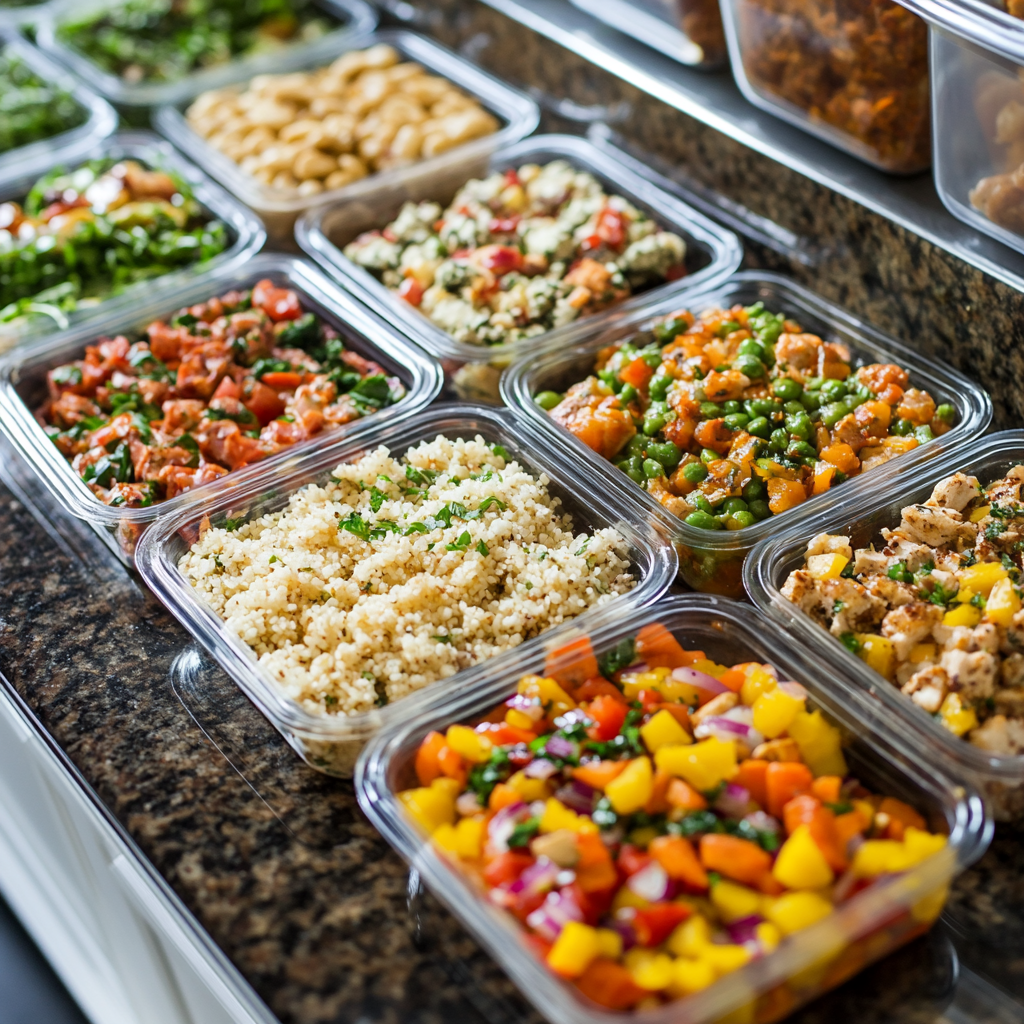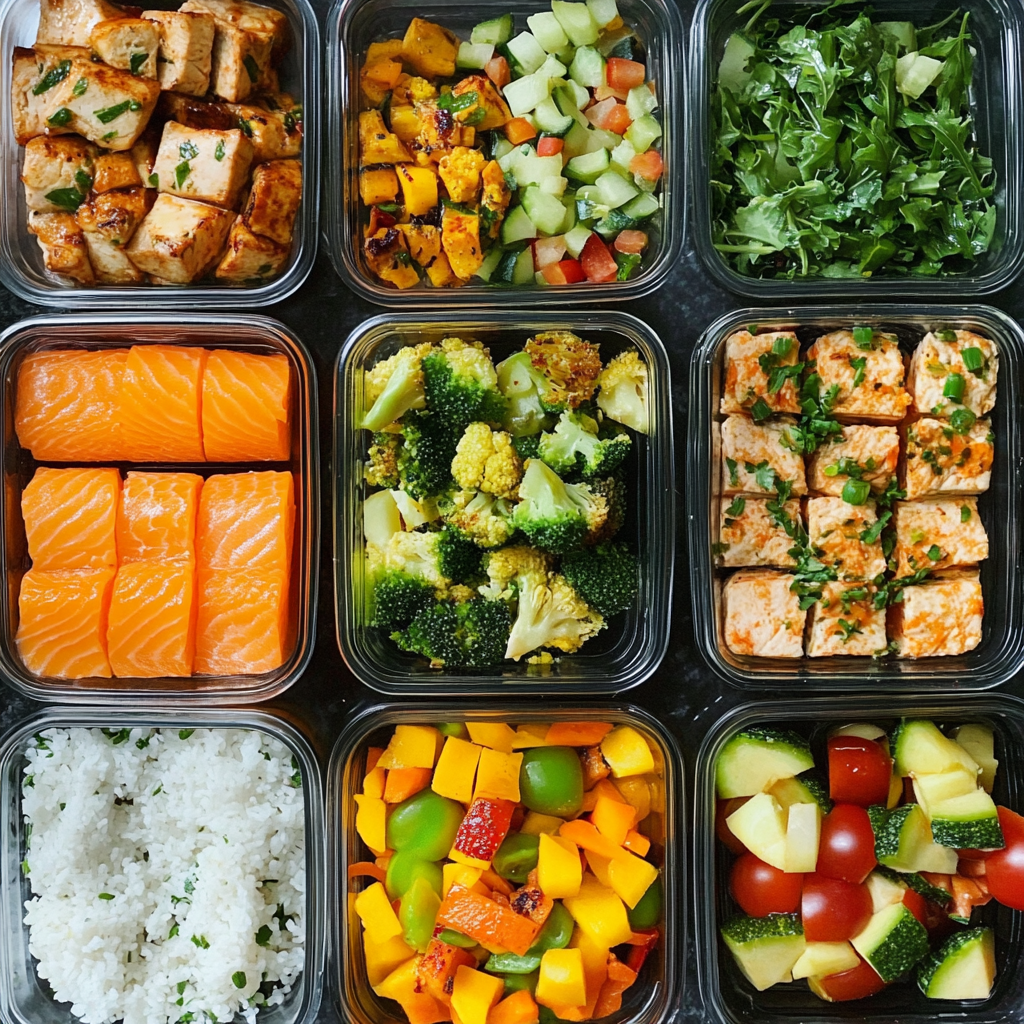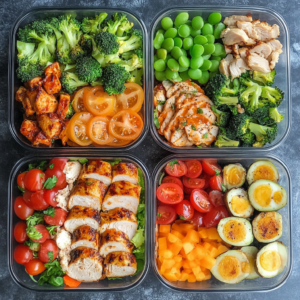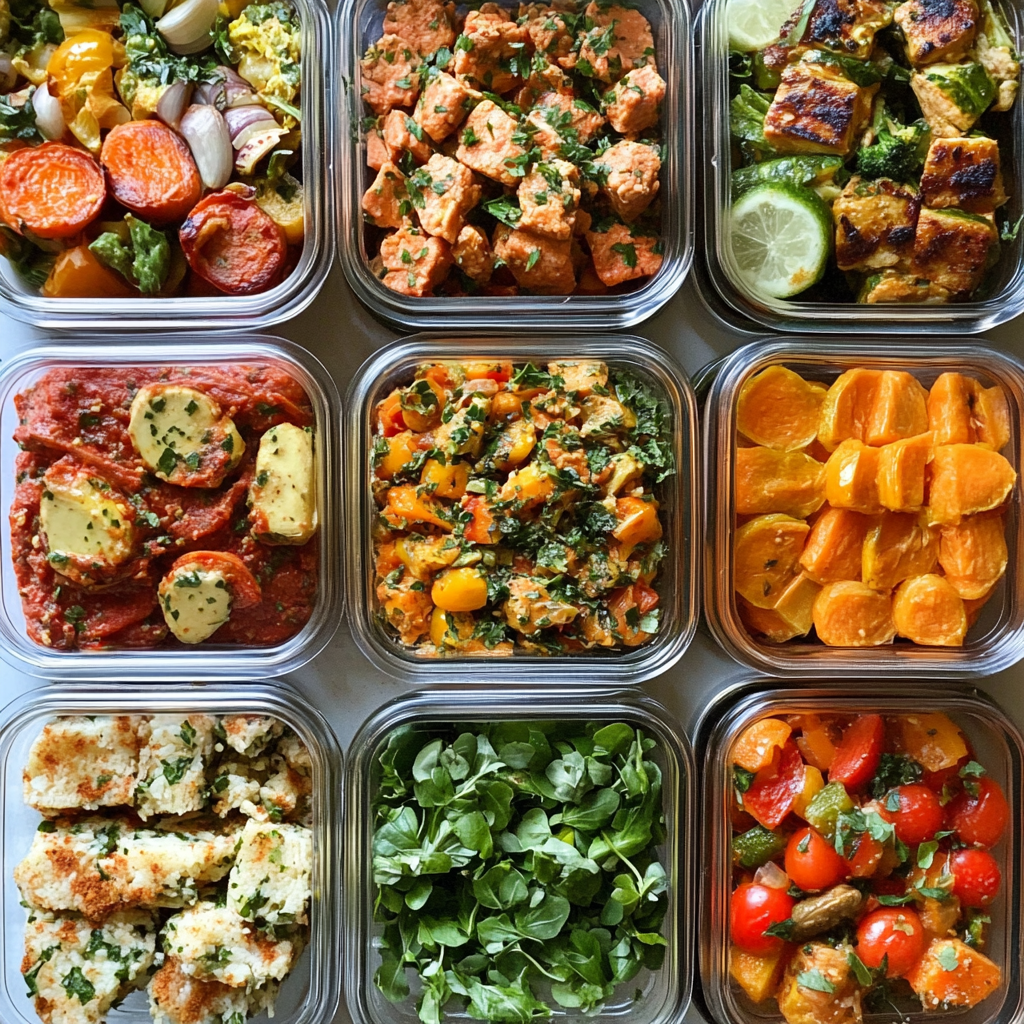Why Meal Prep?
The benefits of meal prep extend beyond just convenience. By dedicating a few hours each week to preparing your meals, you can:
- Save time during busy weekdays.
- Ensure a balanced diet with portion-controlled meals.
- Reduce food waste by planning and using up ingredients efficiently.
- Save money by avoiding last-minute takeout orders.
Moreover, meal prepping allows you to customize your meals according to your dietary needs. For instance, whether you’re focusing on high-protein meals, low-carb options, or simply aiming to incorporate more vegetables into your diet, meal prep can help you achieve your goals more efficiently.
For those new to meal prepping, it might seem overwhelming at first. However, by following some basic principles and utilizing a few essential tools, you can set yourself up for success right from the start.
Basic Principles of Meal Prep
To start meal prepping effectively, it’s essential to understand a few foundational concepts. First and foremost, batch cooking allows you to prepare large quantities of a particular food item and portion it out for several meals. This method not only saves time but also ensures consistency in your meals. Additionally, portion control helps manage calorie intake and ensures that you’re eating the right amounts of different food groups.
Furthermore, meal planning is crucial because it simplifies the grocery shopping process and ensures you have everything you need. This step prevents the mid-week scramble when you’re missing an ingredient for your planned dish. Utilizing the right tools can also make a significant difference in your meal prep routine. Investing in good-quality meal prep containers, a sharp knife, and a reliable slow cooker or Instant Pot can streamline the process significantly.
For further tips on maintaining a balanced diet while meal prepping, refer to Harvard Health Publishing’s Healthy Eating Plate. This resource provides valuable insights on portion control and balancing your meals.
Categories of Meal Prep Recipes
Breakfast Meal Prep Recipes
Starting your day with a nutritious breakfast can set the tone for the rest of the day. Here are some easy and healthy breakfast options:
- Overnight oats: A versatile and customizable option that can be prepared the night before.
- Smoothie packs: Pre-packaged frozen ingredients that can be blended in the morning for a quick, nutritious meal.
- Egg muffins: High in protein and easy to reheat, these make for a perfect grab-and-go breakfast.
By incorporating these breakfast recipes into your meal prep routine, you ensure that you have a healthy start to your day, even when you’re pressed for time.
Lunch Meal Prep Recipes
Lunch is often where people struggle, especially when it comes to finding meals that are easy to transport and won’t get soggy. Consider the following:
- Mason jar salads: Layer your ingredients to keep them fresh until you’re ready to eat.
- Grain bowls: Quinoa, brown rice, or farro serve as a great base, topped with your choice of vegetables and proteins.
- Wraps: Mediterranean chickpea and feta wraps or roasted sweet potato wraps are hearty and nutritious.
Including these options in your weekly meal prep not only ensures variety but also provides a balanced intake of nutrients.
For more lunch ideas that are both healthy and delicious, you might find MyFitnessPal Blog’s Healthy Eating Tips extremely helpful. This guide offers insights into creating meals that support a healthy lifestyle.
Dinner Meal Prep Recipes
Dinner meal prep can help you avoid the temptation of takeout after a long day. Focus on recipes that are easy to reheat and taste great as leftovers:
- Sheet pan meals: Roast vegetables and protein together on one pan for minimal cleanup.
- Casseroles: These are ideal for freezing and reheating later in the week.
- Slow-cooker meals: Start these in the morning, and come home to a ready-made dinner.
By having these meals prepped and ready to go, you’ll be able to enjoy a nutritious and satisfying dinner with minimal effort.
Detailed Recipe Examples
Breakfast Recipes
- Overnight Oats: Combine rolled oats, chia seeds, and almond milk in a jar. Add your choice of sweetener and fruit, then refrigerate overnight. This simple breakfast is both delicious and convenient, especially for those busy mornings.
- Smoothie Packs: In a ziplock bag, combine a mix of frozen fruits, spinach, and protein powder. When ready to use, blend with almond milk. Not only does this option save time, but it also ensures you get your daily dose of fruits and veggies.
Lunch Recipes
- Mason Jar Salad: Layer your favorite salad ingredients starting with the dressing at the bottom, followed by hard vegetables, proteins, and greens on top. This method keeps your salad fresh and crisp until you’re ready to eat it.
- Quinoa Salad: Cook quinoa and mix with black beans, corn, and a chili-lime vinaigrette for a flavorful and filling meal. This salad is not only hearty but also packed with nutrients.
Dinner Recipes
- Sheet Pan Chicken and Vegetables: Season chicken breasts and assorted vegetables with olive oil and spices, then roast at 400°F for 25 minutes. This recipe is perfect for a quick, balanced meal.
- Vegetarian Chili: Combine beans, tomatoes, and spices in a slow cooker. Let it simmer for several hours for a rich and hearty dish. This meal is not only easy to prepare but also freezes well for future use.
Tips and Best Practices for Successful Meal Prep
To ensure your meal prep efforts are successful, consider these best practices:
- Plan your meals: Dedicate time each week to planning what you’ll eat. This helps with grocery shopping and ensures you have all necessary ingredients. Planning ahead also reduces the likelihood of opting for unhealthy convenience foods.
- Invest in good containers: Airtight containers are crucial for keeping your meals fresh throughout the week. Proper storage also helps maintain the nutritional value of your meals.
- Label and date your meals: This helps you keep track of what to eat first and avoids food waste. Knowing exactly what you have in your fridge at a glance can save you from unnecessary stress.
For comprehensive guidelines on food storage, refer to the USDA Food Safety Guidelines. Following these guidelines will help ensure your prepped meals are both safe and delicious.
FAQs on Meal Prep
How long can I store meal-prepped food?
- Most meals can be stored in the fridge for 3-5 days. However, freezing extends their shelf life significantly.
What are the best containers for meal prep?
- Glass containers are ideal for reheating, while BPA-free plastic containers are lightweight and portable.
Can I freeze meal-prepped meals?
- Yes, many meals freeze well, particularly soups, stews, and casseroles.
How do I keep meals from getting boring?
- Rotate your recipes weekly, and use different spices and herbs to keep your meals interesting. Additionally, trying new cuisines can help keep your meals exciting.
Conclusion
Meal prepping is an invaluable habit that can transform your diet and lifestyle. By following these tips and recipes, you’ll not only save time but also ensure you’re eating balanced, nutritious meals every day. Start small, and gradually build your meal prep routine until it becomes second nature. With a little practice and consistency, meal prep will soon become an effortless part of your weekly routine. Happy prepping!
